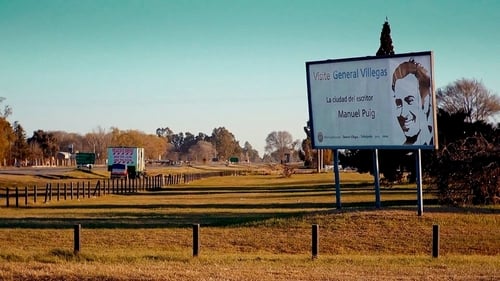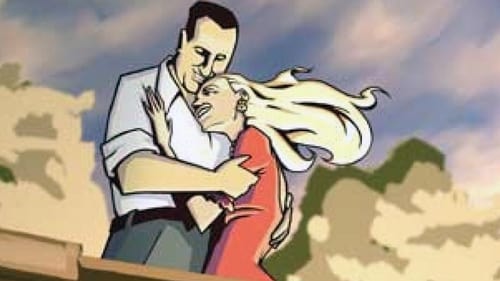
Writer
In July 1982, a month after the capitulation of Argentine troops in the Falklands war with Great Britain, GENTE magazine published on the cover a photo of a boy who had sent a letter and a chocolate to an anonymous soldier. His letter and chocolate would never reach the recipient, the chocolate being later sold at a kiosk in the Argentinian town of Comodoro Rivadavia. 38 years later, Gustavo Vidal, the chocolate boy, embarks on a journey to reconstruct the story that moved, in its time, Argentines deceived by the press before, during and after the armed conflict with the United Kingdom.

Director
In July 1982, a month after the capitulation of Argentine troops in the Falklands war with Great Britain, GENTE magazine published on the cover a photo of a boy who had sent a letter and a chocolate to an anonymous soldier. His letter and chocolate would never reach the recipient, the chocolate being later sold at a kiosk in the Argentinian town of Comodoro Rivadavia. 38 years later, Gustavo Vidal, the chocolate boy, embarks on a journey to reconstruct the story that moved, in its time, Argentines deceived by the press before, during and after the armed conflict with the United Kingdom.

Archival Footage Research
A bitter postcard of the town of the Buenos Aires countryside that Argentinean writer Manuel Puig (1932-90) portrayed with singular mastery, based on his own land, a town named General Villegas. Its inhabitants never forgave him. However, a woman, owner of a painful and enigmatic past, will build a bridge between Coronel Vallejos, the town created by Puig, and the real General Villegas, trying to reconcile the place with the writer.

Executive Producer
A bitter postcard of the town of the Buenos Aires countryside that Argentinean writer Manuel Puig (1932-90) portrayed with singular mastery, based on his own land, a town named General Villegas. Its inhabitants never forgave him. However, a woman, owner of a painful and enigmatic past, will build a bridge between Coronel Vallejos, the town created by Puig, and the real General Villegas, trying to reconcile the place with the writer.

Writer
A bitter postcard of the town of the Buenos Aires countryside that Argentinean writer Manuel Puig (1932-90) portrayed with singular mastery, based on his own land, a town named General Villegas. Its inhabitants never forgave him. However, a woman, owner of a painful and enigmatic past, will build a bridge between Coronel Vallejos, the town created by Puig, and the real General Villegas, trying to reconcile the place with the writer.

Director
A bitter postcard of the town of the Buenos Aires countryside that Argentinean writer Manuel Puig (1932-90) portrayed with singular mastery, based on his own land, a town named General Villegas. Its inhabitants never forgave him. However, a woman, owner of a painful and enigmatic past, will build a bridge between Coronel Vallejos, the town created by Puig, and the real General Villegas, trying to reconcile the place with the writer.

Writer
Argentina's Eva told from the perspective of journalist Rodolfo Walsh the remarkable story of Eva Peron. The obsession of this writer and journalist in the reconstruction of the history of Evita is both rebuilding your own life and death and the fate of the Argentines. Considered a saint for the humble and a myth to the world, Argentina's Eve is the story of a heroine of the twentieth century was the World with the promise to return and be millions. The film is made of a 70% cut-out animation and 30% in archive footage, based on the designs of master Solano Lopez.

Writer
Carlos Castro's documentary traces the lives of Alicia Eguren and John William Cooke, companions of life and militancy, at the same time that it combines the history of the Peronist movement, its victories, hopes and failures.

Director
Carlos Castro's documentary traces the lives of Alicia Eguren and John William Cooke, companions of life and militancy, at the same time that it combines the history of the Peronist movement, its victories, hopes and failures.

Producer

Archival Footage Research

Camera Operator

Director

Writer
The documentary deals with the political life of Arturo Jauretche, one of the main critics of the dominant thought that advances in subjects that will be the center of debate: the national bourgeoisie, the “pedagogical colonization” and the need to “think nationally".

Director
The documentary deals with the political life of Arturo Jauretche, one of the main critics of the dominant thought that advances in subjects that will be the center of debate: the national bourgeoisie, the “pedagogical colonization” and the need to “think nationally".









